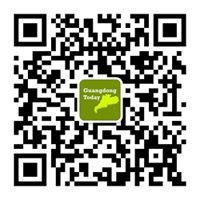If any beverage is Hong Kong's signature drink apart from milk tea, it is herbal tea. The city is crawling with herbal tea shops, providing bowls of it to combat colds, runny noses or sore throats. In Hong Kong and Guangdong province, herbal tea, linked to traditional Chinese medicine (TCM), is widely accepted and used.
Lately TCM has gained further traction and acceptance from the World Health Organization. In the WHO's latest International Statistical Classification of Diseases and Related Health Problems, there is a chapter on TCM - for the first time.
This offers an opportunity for Hong Kong to consolidate its long-standing efforts since the 1980s in promoting TCM in the city and even in the Guangdong-Hong Kong-Macao Greater Bay Area.
The outline development plan for the Bay Area also calls for deeper collaboration over TCM among member cities in the region. Hong Kong and Macao are encouraged to work with research and development institutions to formulate a globally recognized quality management system for TCM products.
Traditional Chinese medicine has a great future in HK and the Bay Area
According to the State Administration of Traditional Chinese Medicine, the TCM industry, which is worth 860 billion yuan ($124 billion), is growing by 20 percent annually.
Globally, TCM is also gaining greater recognition. It is being practiced in 183 countries and regions, according to a Xinhua report. And a number of TCM centers are being established in countries and regions involved in the Belt and Road Initiative.
It is a growing industry that clearly offers many opportunities for Hong Kong, where cultures of East and West converge and create a good environment for TCM development.
In fact, Hong Kong is well-positioned to jointly develop and promote TCM with other Bay Area cities.
Apart from herbal tea shops, Hong Kong has TCM clinics in all of its 18 districts. In 2017, a total of 1.21 million visits were made to these out-patient clinics. Each year, 80 people will be trained by three prestigious universities providing TCM courses. Hong Kong currently has about 10,000 TCM healers.
The government is studying ways to provide more integrated Chinese-Western medicine treatment at designated public hospitals. Now, seven of the city's public hospitals offer TCM treatment for four types of diseases. This includes cancer palliative care, low back pain care and stroke care. The city's first TCM hospital is now underway. It will start providing services in 2024.
Chief Executive Carrie Lam Cheng Yuet-ngor told the Hong Kong International Summit on Chinese Medicine in August 2018 the government would intensify efforts to integrate TCM into the city's public healthcare system.
But some skeptics of TCM in the city have argued that the supplies of TCM healers have already surpassed demand in the city. The development of TCM, in their opinion, faces stumbling blocks such as a lack of resources and professional verification system.
Currently, Hong Kong's local TCM students need to fulfill an internship ranging from nine months to a year and a half on the Chinese mainland before being listed and registered as a TCM practitioner in the city. A lot of them face the dilemma of coming back to the city or staying on the mainland after doing their internships. The growing demand for TCM services in the Bay Area offers a way out. Other Bay Area cities can absorb Hong Kong's surplus TCM talents through cross-boundary collaboration; they can gain experience and knowledge about the two different medical systems.
Such cross-boundary collaboration in TCM is already happening in the Bay Area. Shenzhen Traditional Chinese Medicine Hospital has established a mechanism on cooperation and academic exchanges with Hong Kong's TCM trainers and associations. Apart from collaboration in teaching, it has teamed up with the TCM research and development center in the Hong Kong University of Science and Technology to develop new TCM drugs.
Meanwhile, Hong Kong, with its edge in basic scientific research and development, can use TCM clinical data from the Chinese mainland to vindicate the efficacy of TCM. The Bay Area, with a population of 71 million, clearly serves as an excellent base to collect clinical data on TCM.




